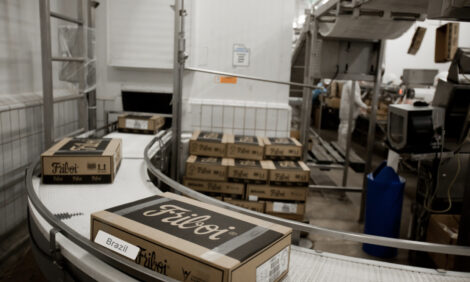



Can EU Afford CAP Reforms?
ANALYSIS - The European Members of Parliament have on the surface given the go-ahead to a fairer, greener Common Agricultural Policy, writes Chris Harris.The European Parliament's agriculture committee has agreed measures that will help to even out payments to farmers across the EU so that the poorer and newer member states are not receiving substantially less than the more established states.
The MEPs have agreed to cap the amount of subsidies for individual farmers and reduce the large sums that have previously been handed out, so some of that money can be redistributed.
They have also approved new environmental rules focusing on crop diversification, maintaining permanent pasture and creating ecologically focused areas.
However, the MEPs are stridently standing by a no cuts policy and have refused to see any reduction in the Common Agricultural Policy budget.
"This is the moment of truth. The Agriculture Committee has said today how the new CAP should look. It should be more efficient, greener and able to respond to the enormous challenges ahead of us. Such ambitious goals entail higher costs. So any further cuts to the CAP budget are simply inacceptable," said committee chairman Paolo De Castro (pictured).
The budget, which will cover the next seven years from 2014-2020, is forecast to be around €435.6 billion with the vast majority of it spent on direct subsidies to farmers. About three quarters of the CAP budget is spent in these Pillar 1 direct subsidy payments.
The CAP represents over 40 per cent of EU budget expenditure and is the most expensive of EU policies, and much of this expenditure represents poor value for money.
Much of the talk in the run up to the reforms of the CAP has been to transfer the payments away from direct subsidies that support production to a more market oriented agricultural system with payments for environmental and rural care issues.
However, if the European Parliament's views are to be taken into consideration, the needs of new member states with poorer economies and a less developed agricultural sector appear to have overridden the need to give EU agriculture a more market oriented focus.
The focus has been more towards a redistribution of aid rather than a refocusing why aid is paid.
The MEPs said that differences among EU member states in the levels of EU funding that farmers receive should be reduced faster than the Commission has proposed. Under the new rules, the MEPs said that no member state's farmers should receive less than 65 per cent of the EU average.
"The committee has voted for a stronger redistribution of aid among member states, as it is difficult to accept differences of roughly €300 per hectare between farmers in different member states," said Luis Manuel Capoulas Santos, rapporteur for the Direct Payments and Rural development regulations.
The rate of payments to farmers within each member state could also be made equal by 2019.
The MEPs are looking to cap the amount paid to a single farm to €300,000 and those receiving direct payments at present will see the amounts they receive reduced on a sliding scale. These reductions are part of the way the MEPs foresee that payments can be evened out across the EU and made more equitable.
How these payments are made and for what - particularly when it comes to the new member states - is unclear.
The European Commission and the member states have already looked to decouple payments from production, but the report from the MEPs seems to indicate that while greening and environmental issues have been brought in to the Pillar 1 direct payment measures, these measures could be difficult for some newer members of the EU.
At present much of the environmental payment falls under the second tier Pillar 2 measures, although there are attempts to shift this aid to Pillar 1.
And just under a quarter of the CAP is spent on rural development measures including improving competitiveness, improving the environment and countryside and improving quality of life and economic diversification for rural communities.
Farmers manage more than 70 per cent of EU land and are intricately linked to the environment, so there is real benefit in ensuring farmers manage EU land sustainably.
However, the MEPs decision and recommendations for the reforms of the CAP seem to turn a blind eye to the present economic situation in Europe and the Euro crisis by refusing to acknowledge the need or possibility of cuts to the budget despite the fact that other areas of EU expenditure are being pared to the core.
The CAP reform recommendations will be considered by the EU heads next month and the whole of the European Parliament in March, by which time there will be just nine months left before they have to be implemented.
Further Reading
|
| - | Go to our previous news item on this story by clicking here. |









